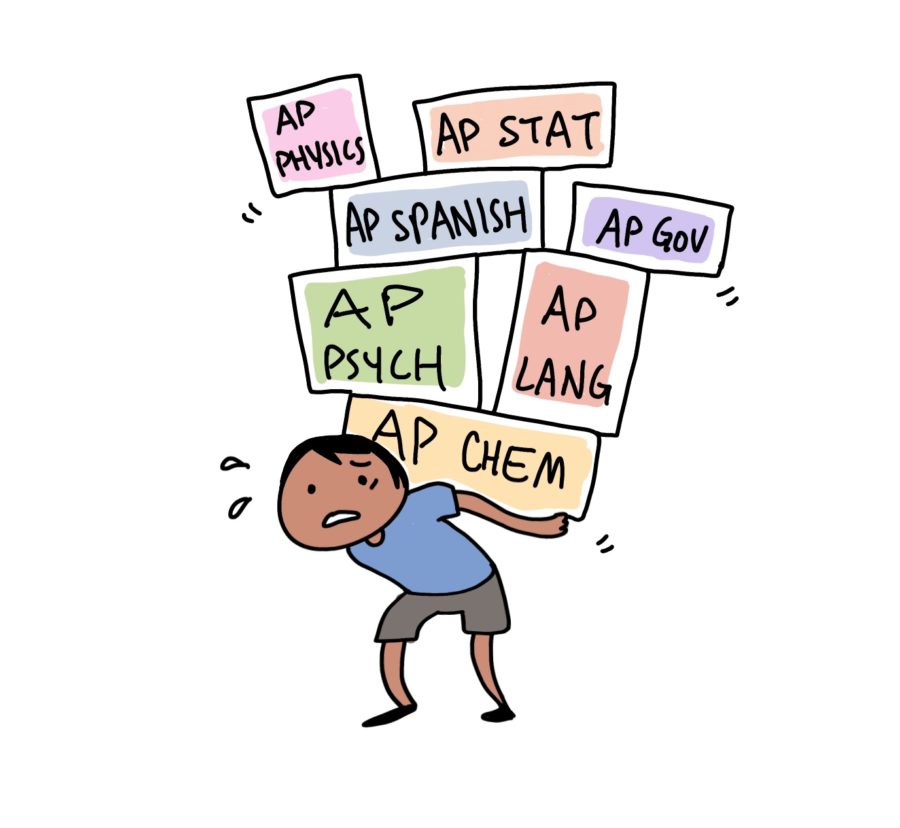By Hyunjin Lee, Co-T/E-Life-Editor
We’ve all been there. It’s 11 p.m. and the last thing you want to do is stay up all night to finish writing your essay, the French project, and history notes…
But why is it so easy to procrastinate?
Every day, we are overwhelmed by assignments, especially at Conestoga, where taking multiple AP classes is the norm. To some extent, procrastination is unavoidable, given the numerous distractions available in our world today.
The ever-improving technology, supposed to make our lives much better, is actually making our lives, at least our productivity, worse. Sure, things like phones, tablets and smart watches do make our lives much more convenient. But they also take away countless hours that we can’t afford to waste. For one, your laptop. our laptops are so integral to our school life that it’s basically impossible to eliminate distraction when you work on homework or classwork. Have you ever gone off task in class and done something other than what the teachers assigned you? For example, in your history class, when you are supposed to be on OneNote, do you ever read the news, play games or watch YouTube instead? I am sure there isn’t a single person at Conestoga who can claim that they have never done this.
That’s not to say that our phones aren’t a distraction, because they are. But the point is, our laptops are so integral to our school life that it’s basically impossible to eliminate distraction when you work on homework or classwork. My personal experience with wasting time on my laptop continues to be a problem, and I am sure you can all relate.
Almost every day, I come home after music lessons, clubs, or track practice with tons of homework but also with the confidence that today is the day that, I will not only finish the assignments due tomorrow but those assignments and projects due for later this week. So I turn off all of my notifications, open my laptop and get started on my work.
Except, the minute I start something productive, distractions are everywhere. I pick up my phone and start checking everything from social media, news, texts. Before I know it, what I promised myself would only take five minutes gets stretched to two hours. It’s already 9 p.m. and nothing is done.
We can all agree that procrastination leads to stress and steals our sleep.
Alisa Opar, in her article “Why We Procrastinate,” cites a research conducted by a group of New York University professors. They found that peoples’ neural activity when describing themselves in the future was similar to that when they described Matt Damon or Natalie Portman. We’re basically treating our future self as if it’s another person. As a result of this poor connection to our future self, people tend to procrastinate, putting things off for “later, future” versions of ourself to deal with the problem later.
One solution explored as explored by Anne Wilson, a psychologist at Wilfrid Laurier University, considered what would happen if we could improve our work ethic. She gave participants in her study timelines for projects, breaking down the process. Unsurprisingly, students finished their assignments earlier.
After I first read this article in my freshmen year, probably one of the worst years of my life in terms of stress, I believed this to be the solution to all of my procrastination problems. I began to keep a meticulous calendar of all my assignments and sat back, hoping to see a change. Amazingly, my work ethic improved, however, my stress levels, as well as my time spent working on assignments only went up. As a perfectionist, I had to make every little detail the way I liked it, otherwise, in my eyes, that assignment was not “complete.” Because now I had the leisure to work without the pressure of working against the clock, I stressed over anything and everything. I decided to stop keeping a timeline of due dates.
But this doesn’t mean that Wilson’s research is totally invalid. It just didn’t work for me because of the way I think and what I constitute important may differ from other people.
For the first time, I realized that public perception of procrastination was probably false, and outdated at best. I found that procrastination helped increase my efficiency, but at the cost of quality. This is true for many other students at Conestoga, who like me, chose efficiency over quality. Even though I still deal with wasting time and my laptop is still no less of a distraction than it was before, I have come to accept procrastination as just part of who I am.
But there are others, who would much prefer “pre-crastinating.” They don’t like to deal with the last minute pressure, lack of sleep as well as the risks that come with procrastination. I used to believe I was one of them when I still associated procrastination with bad students. But I learned over time procrastination really does not signify students’ laziness or lack of motivation. It all just comes down to your preferences and what you value most.
Hyunjin Lee can be reached at [email protected]





















































































